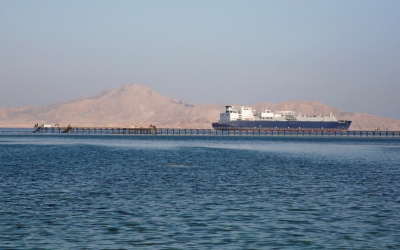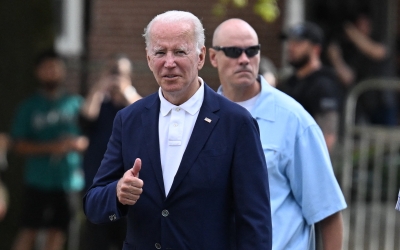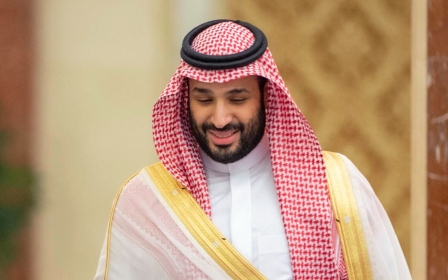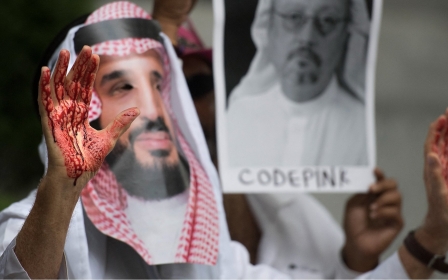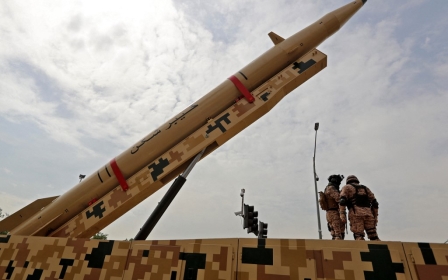Biden to visit Saudi Arabia next month, the important partner he once called a 'pariah'
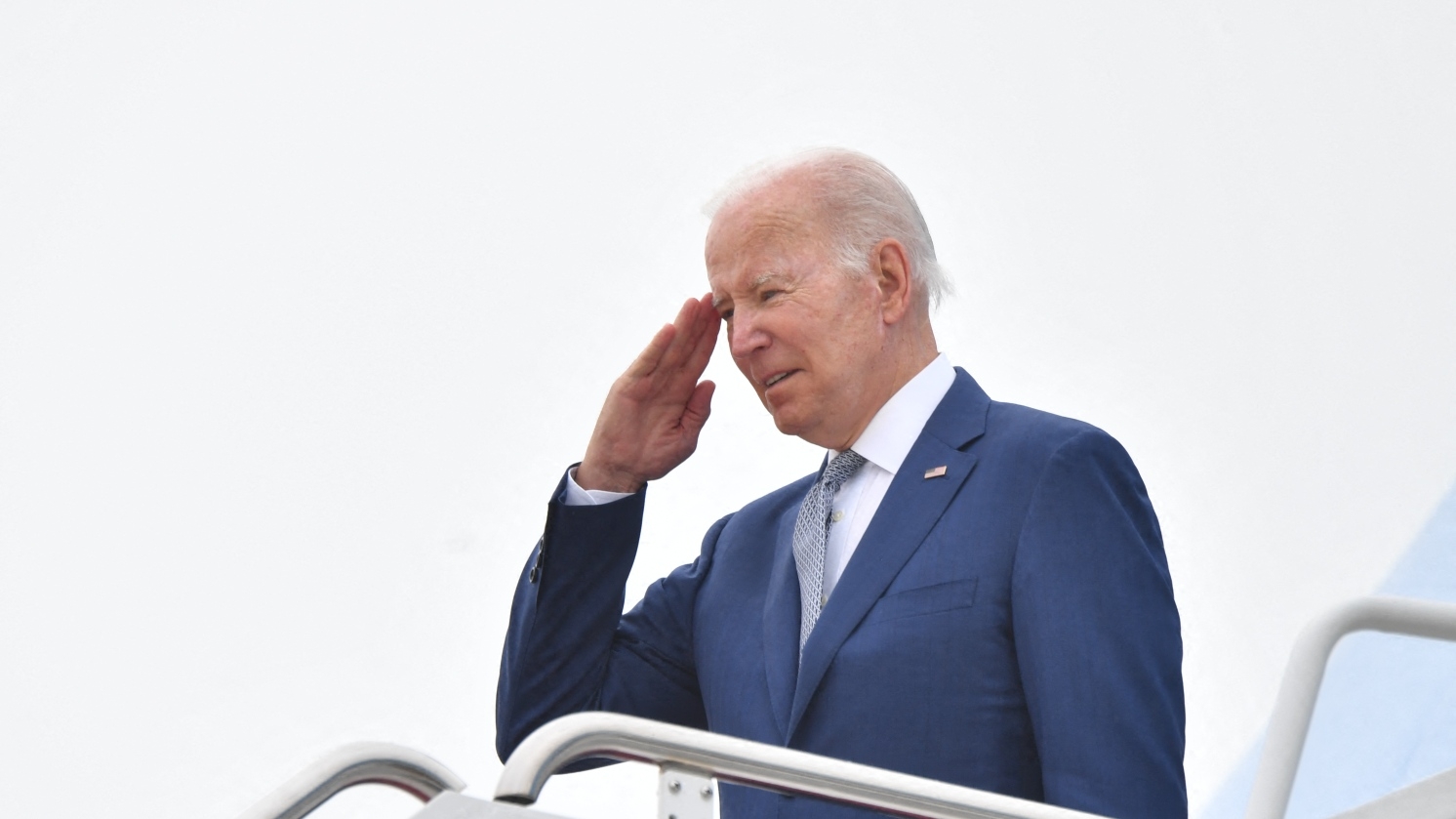
US President Joe Biden will visit Saudi Arabia next month, the White House announced on Tuesday, where the president will meet Crown Prince Mohammed bin Salman, reversing a campaign pledge to make the kingdom a "pariah".
During a four-day trip from 13 to 16 July, Biden is planning to visit Israel, the occupied West Bank and Saudi Arabia, White House officials formally confirmed for the first time, after the itinerary had been debated for weeks within the administration.
'Look, human rights is always a part of the conversation at our foreign engagements. I think it's what makes the United States unique'
- White House official
It will culminate with a major gathering of regional leaders in Jeddah, the Saudi port city, where Biden is expected to engage in some capacity with bin Salman, also known as MBS.
"The president looks forward to outlining his affirmative vision for US engagement in the region over the coming months and years," White House press secretary Karine Jean-Pierre said in a statement announcing the visit.
"The president appreciates King Salman's leadership and his invitation. He looks forward to this important visit to Saudi Arabia, which has been a strategic partner of the United States for nearly eight decades."
"We're now in a place where we feel this has come together in a very constructive way for everyone involved and the president's looking forward to it," a senior administration official told reporters on Monday evening.
The official said Biden was expected to see the crown prince during the trip but did not address whether Biden planned to raise the issue of Middle East Eye columnist Jamal Khashoggi's killing directly.
"Look, human rights is always a part of the conversation at our foreign engagements," the official said. "I think it's what makes the United States unique. I think it's what makes our administration unique.”
The official said the administration views private conversations as at times more effective than public pressure.
"But our administration is not overlooking any conduct that took place before we entered office," the official said. "And of course, early on we issued an extensive report about the Khashoggi murder."
"Saudi Arabia has been a strategic partner of the United States for eight decades," the official said. "We share a host of interests with Saudi Arabia, from containing Iran to counterterrorism to helping protect its territory where, importantly, 70,000 Americans live and work. And I just think that’s an important fact."
The trip reflects Biden's attempt to address a number of issues in the region: Iran's nuclear programme, soaring fuel prices, the war in Yemen, and the potential for normalisation between Saudi Arabia and Israel.
The president will fly directly from Israel to Jeddah, itself a sign of warming relations in a region where bans on direct travel were once an extension of deep enmity between Israel and its Arab neighbours. In Jeddah, he'll participate in a summit of the Gulf Cooperation Council, comprised of the region's monarchies, plus Egypt, Jordan and Iraq.
Biden will also hold a virtual summit with the leaders of India, Israel, the US and UAE, an official said.
The Saudi announcement of the visit was more explicit. "The crown prince and President Biden will hold official talks that will focus on various areas of bilateral cooperation," the statement read.
'National security for Israel'
Biden had initially said he would not engage MBS. When coming into office, he said that he would speak only to the crown prince's father, King Salman, who is 86 years old and in deteriorating health.
The White House said in February 2021 that Biden was looking to "recalibrate" relations with Riyadh, including by shunning the crown prince, whom US intelligence agencies have deemed responsible for Khashoggi's killing.
But Russia's invasion of Ukraine earlier this year, coupled with a global spike in energy prices, has put a dent in that calculus and the administration has now determined it is necessary to boost ties with the kingdom.
"At bottom, the president believes strongly at this particular moment in the world, with interests at stake for the United States and the American people, visiting Saudi Arabia for a summit of leaders from across the Middle East region to discuss face to face with those leaders, including the Saudis, how we move forward as partners is the smart thing to do at the right time and offers opportunity for significant gains," the senior administration official said.
Speaking to reporters this weekend, Biden insisted the trip was not tied to global energy prices, even though the US has been pressuring the Saudi-led Opec+ cartel to increase oil production as the price of gas skyrockets.
"The commitments from the Saudis don't relate to anything having to do with energy," he said. "It happens to be a larger meeting taking place in Saudi Arabia. That's the reason I'm going. And it has to do with national security for them - for Israelis."
The Biden administration, led by White House Middle East coordinator Brett McGurk, has been working with Israel and Saudi Arabia to broker economic and security agreements as the two countries work toward establishing ties.
Saudi Arabia does not officially recognise Israel and the nations have no official diplomatic relations.
Earlier this month, Israel reportedly confirmed it will agree to new security arrangements that will allow Egypt to transfer control of two strategic islands in the Red Sea to Saudi Arabia. Another agreement would also allow commercial flights travelling from Israel to fly over Saudi airspace.
Middle East Eye propose une couverture et une analyse indépendantes et incomparables du Moyen-Orient, de l’Afrique du Nord et d’autres régions du monde. Pour en savoir plus sur la reprise de ce contenu et les frais qui s’appliquent, veuillez remplir ce formulaire [en anglais]. Pour en savoir plus sur MEE, cliquez ici [en anglais].


